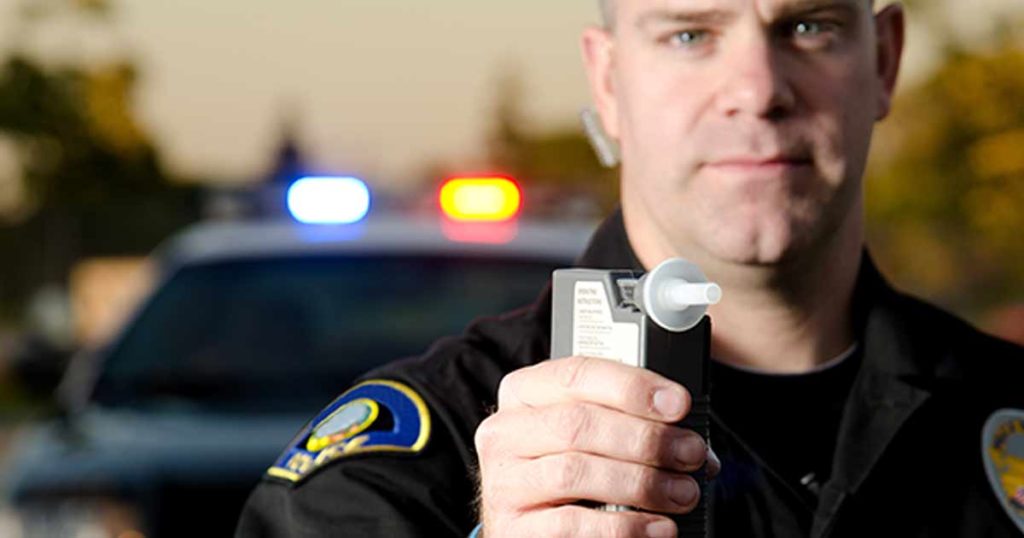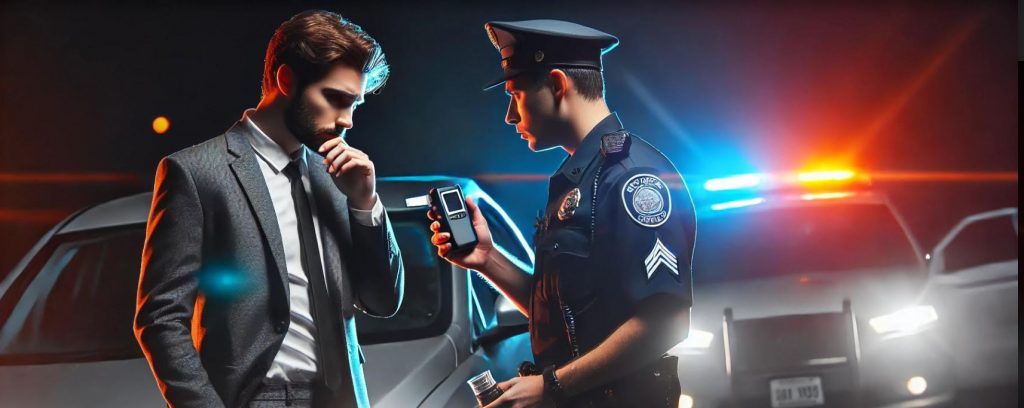Here is what you need to know about OWI or DUI charges in Michigan.
Most people stopped for OWI or DUI are not even aware they are under the influence. When a law-abiding citizen is arrested in the middle of the night for driving under the influence, the experience can be traumatic.

General Advice if Stopped for OWI in Michigan:
If a police officer has stopped you and you have been drinking, you will immediately be suspected of OWI (Operating While Intoxicated). The officer will be suspicious, regardless of whether you are actually intoxicated or impaired.
First, remain calm. Be polite and courteous at all times. Do not be defensive, wisecrack, or joke with the officers. Police work can be dangerous, and approaching a strange car at night with no backup can be stressful for the officer and often dangerous. The police have to treat every driver as though they might be a danger.
Next, your driver’s license, registration, and insurance information should be handy. If you do not have a driver’s license, you will be looking at a possible charge of DWLS (Driving While License Suspended) as well. If you get pulled over, you will likely be nervous and upset. You will probably fumble around looking for the papers in your glove box, wallet, or purse. This disorganization is precisely what the officer is looking for as a sign of intoxication. Your driver’s license should be in an easily accessed area of your purse or wallet.

Say as Little as Possible
You should avoid talking any more than necessary if stopped by the police for an OWI. The police are looking for you to slur words or speak in a way that is not clear. Any evidence of unusual speech or slurred words can be used against you if it provides evidence that you may be intoxicated.
Often, the officer’s first question is, “Do you know why I pulled you over?” You should answer “no.” You can’t read the officer’s mind, and “no” is an honest answer. This trick question is designed to get you to admit that you were speeding, went through a red light, or something similar. Please do not fall for it. You may be asked where you are going or what you are doing out so late. Just answer, “I’d rather not say. I’m choosing to remain silent.” You have a Fifth Amendment right not to answer questions, and your silence cannot legally be used against you. Silence also cannot be used to justify a search or an arrest. You have nothing to gain by telling the officer where you were. A traffic stop is not a popularity contest, and the officer will not decide not to arrest you for OWI because you were cooperative and answered all of his questions. Be polite at all times, but you do not have to answer questions, and it is not wise to do so.
Make No Admissions
If you are stopped for an OWI investigation, you may be asked, “How much have you had to drink?” or “Have you been drinking?” Again, the answer is, “I’d rather not answer. I chose to remain silent.” If you admit to drinking, you hurt yourself. If you lie, you hurt yourself. Politely say, “I’d rather not answer.” If the officer asks you how much you’ve had to drink, you should say, “I’d rather not answer.” Saying “I forget” implies that you were drinking and that you were drinking so much you can’t remember. Saying “a few beers” or something similar is admitting that you were drinking helps the officer arrest you and take you for a breath or blood test. Even if it is evident that you have been drinking, you should not help the police make the case against you. Admitting to drinking alcohol in any amount can result in the officer having probable cause to arrest you. Essentially, you should say nothing in response to these questions.
Be Cooperative But Do Not Agree to Take Field Sobriety Tests
At some point, you will be asked to step out of the car if you are stopped for OWI. You should comply and be as cooperative as possible at this point. You cannot refuse to exit your car, and you cannot refuse to let the officer pat you down for weapons. You do not have a right to be told why you are being asked to exit your car. Just do it politely, or you may find yourself in a much worse position. If you feel your rights are being violated, you can address that much more effectively with a complaint or lawsuit at a later time.
The officer may start telling you to do sobriety tests or ask you if you are willing to perform field sobriety tests. Contrary to popular belief, you are not required to do field sobriety tests (such as following a pen with your eyes, standing on one leg, walking in a straight line, or saying the alphabet). In fact, you should NEVER do field sobriety tests. The officer will not tell you that you are allowed to refuse. The officer will tell you to do them. If the officer gets upset or starts being belligerent, remain calm and polite but steadfast in your refusal to perform tests.
The only reason the officer asks you to do sobriety tests is that when you fail one or more, it can go in the police report as the basis for probable cause to arrest you. You would probably fail at least one of them when sober anyway. The standards used to determine if a subject fails a test are subjective and highly technical. Most people who are stone-cold sober cannot pass these tests. Say, “I do not want to do any field tests.”

A PBT is not a Breathalyzer and Should be Refused.
You may next be asked to blow into a handheld portable breathalyzer, also known as a PBT. This is called a “preliminary breath test.” Unless you have a commercial driver’s license, you should refuse to take a PBT. Refusing to take a PBT is a civil infraction and carries no points. There is almost always no advantage in taking a PBT. Just say, “no, thank you” if you are stopped for OWI.
If you follow these steps, you are likely to be bullied and threatened by the police. They will not be happy that you are not helping them to build a case against you. They may have your car towed. They may tell you that they won’t let you go home that night. No matter what they tell you, it is unlikely that you will not be arrested at this point if they suspect you of OWI. On the other hand, at a later date, if you are charged with OWI, you will have done everything that you could do to help yourself on the night of the offense.
Do Not Refuse the Chemical Test (Breathalyzer) if Stopped for OWI
A breathalyzer test, also called a chemical or evidentiary test, is not given on the road; it is only given back at the station. If you refuse a police officer’s lawful request to take a chemical test, you will lose your license for one year, with no restrictions. You can fight the suspension at an Implied Consent Hearing or ask a court to order a hardship license, but it is rarely worth the risk and cost of hiring a lawyer to help you with these highly complex procedures. It is best to take the chemical test if stopped for an OWI in most situations.

If you are charged with OWI, DUI, or OWPD, you need a top lawyer to defend you.
The attorneys with LEWIS & DICKSTEIN, P.L.L.C. have decades of successfully defending clients charged with OWI, DUI, and OWPD in Oakland County, Wayne County, Macomb County, Livingston County, Washtenaw County, and throughout Southeastern Michigan. They have had extensive training in advanced OWI defense and trial techniques and use a unique and highly effective team approach to defending felony and misdemeanor charges. If you’ve been stopped for OWI or are charged with any alcohol or drug-related driving charge, call us for a free consultation, and we will find a way to help you.
Call us today at (248) 263-6800 for a free consultation or complete an online Request for Assistance Form. We will contact you promptly and find a way to help you.















